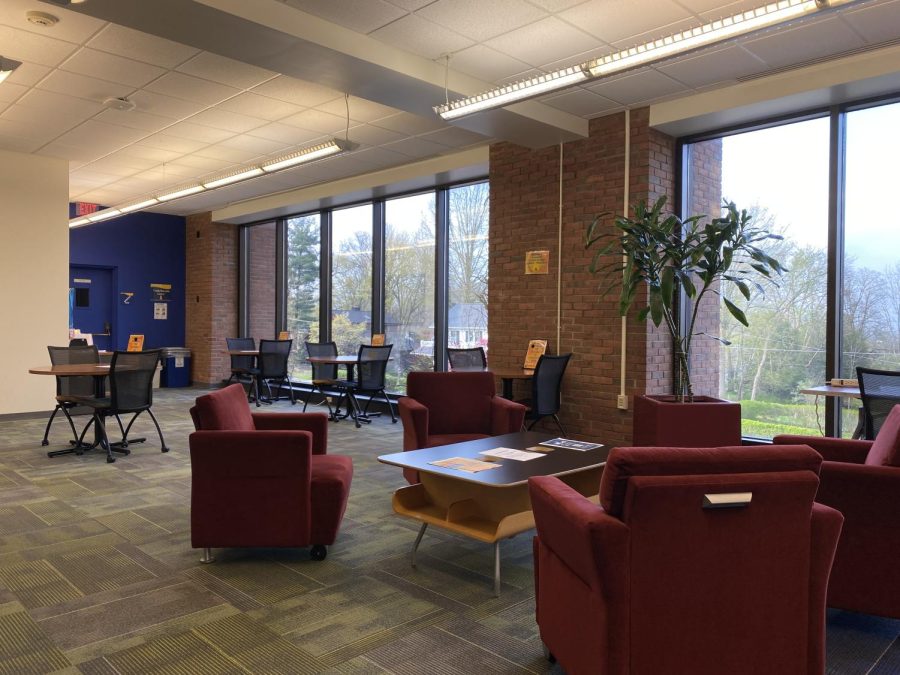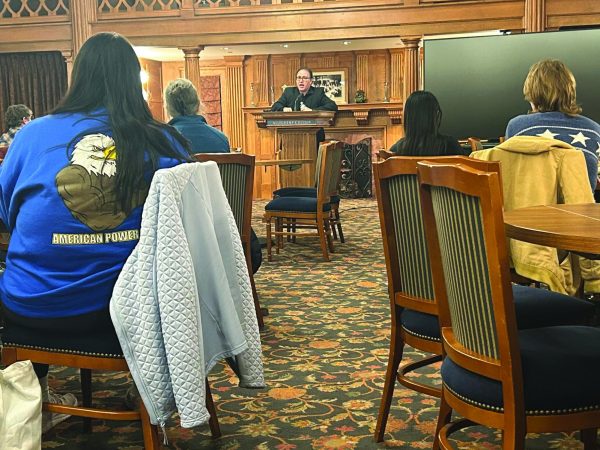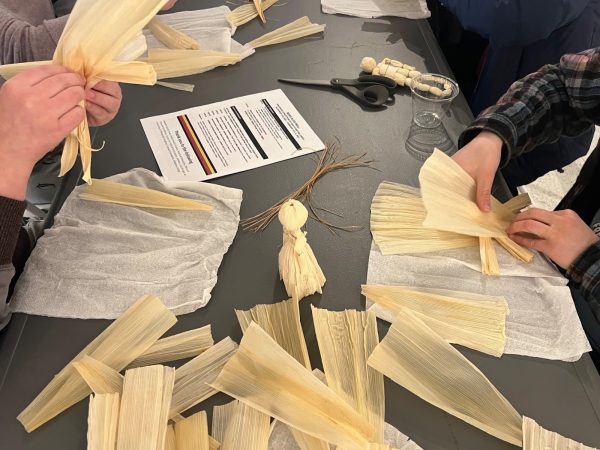The power of peer consulting ‘speaks’ for itself
Speaking consultants help students gain confidence
Speaking consultations are available at Pelletier Library for students who need assistance with speaking assignments.
In the back of the Pelletier Library, there is a service of which few students take advantage: the speaking consultants. The goal of a speaking consultant is to talk with students about choices that they make as a speaker and then give them feedback that will improve their oral presentations. They help with all parts of the process of speaking, including brainstorming ideas, organizing thoughts and helping students practice and rehearse to improve their speaking skills.
Usually, the speaking consultants are composed of nine to eleven members. Currently, the staff includes one sophomore, three juniors and six seniors. Isabel Loch, ’24, is one of them. She started working as a speaking consultant during the fall 2021 semester without any previous teaching experience. At first, working as a speaking consultant was nerve-wracking for her. She got used to it after she had completed her third or fourth shift.
“I feel my work is rewarding when I see students coming in and when I’m asking them some questions about where we are going through and when they are excited about it,” Loch said. “What I can see about the wheels turning about, you know, is there something specifically and struggling with and watching them and have that recommended to get it better and to lead where they wanted to be led.”
Ryan Martinez, ’22, is another member of the staff. He became a speaking consultant because he wanted to learn more about public speaking.
“As a peer consultant, I primarily work with students to review and help them elaborate their ideas when it comes to public speaking,” Martinez said. “I allow for students to really discuss and analyze their ideas in a judgment-free format that (enables) them to get a feel for how a listener may interpret their speech.”
Assistant Professor of Communications Jon Wiebel started working as Allegheny’s director of speaking in the fall of 2012. There are three main facets to his job: mentoring speaking consultants, collaborating with director of writing Professor Alexis Hart on the oral communication curricular program for FS courses and professional development for faculty, which is primarily centered on teaching oral communication.
According to Wiebel, when hiring, he looks for applicants who communicate well and demonstrate strong interpersonal skills. Consultants are required to work with other students, making active listening a big part of their job. Currently, Wiebel is looking for student applicants who are interested in becoming a speaking consultant. Applications are opened once a year, and staff members are hired through a formal interview process.
The speaking consultants share their space in the library with the writing consultants and typically have less appointments than their counterparts. Wiebel mentioned there are two possible reasons to explain this gap. First, there is more written homework than oral homework assigned on campus. Given that many of the tasks students face throughout the semester are written, Wiebel said it was natural for students to use writing consultants’ services more than speaking consultants’.
“If oral communication was as widespread as written communication was in the curriculum, then I would think we would have more students using the peer speaking consultants,” Wiebel said.
He also shared that there is some hesitation among students in making consultation appointments, not only for speaking but also for writing.
“One thing to deemphasize is only going to the peer consultants or the writing consultants if you are a bad speaker or a bad writer,” Wiebel said. “We want to work with all levels of students, it doesn’t matter how good at speaking you are, you always benefit from it.”
He is interested in making the speaking consultants’ services more appealing and accessible. A redesign of the group’s website or making a short video of what the consultants do at work might make the writing and speaking center more comfortable for students to come in, while also providing different types of resources for different students, according to Wiebel.
“I would encourage students to take advantage of writing and peer consultants, and we are here to support you as you think about preparing and delivering your various different kinds of oral presentations you might have been asked to give, not only in your classes, but also outside of classes,” Wiebel said.
Speaking consultants are available to all Allegheny students for drop-in and scheduled appointments. The appointment calendar can be found at https://sites.allegheny.edu/studentsuccess/writing-speech. They are open Sunday through Thursday from 3 to 5 p.m. and 7 to 11 p.m. in the back of the ground floor of the Pelletier Library.








Ochir • May 5, 2022 at 4:29 pm
Good job writing this masterpiece!